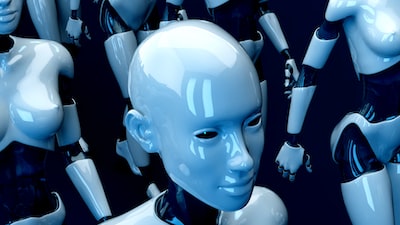AI and the Odyssey of Self-Development: Navigating Personal Growth in the Digital Age

AI and the Odyssey of Self-Development, as the Greek philosopher Socrates once said, “Know thyself.” For centuries, the quest for self-improvement and self-awareness has been a universal endeavor.
Today, in an age of rapid technological advancement, the timeless voyage of self-development has found a new compass—Artificial Intelligence (AI).
With its capability to analyze, learn, and adapt, AI is revolutionizing how we perceive and embark on our personal growth journey. Let’s traverse this evolving landscape by delving into real-life examples of AI’s role in self-development.
Learning Tailored to You: The Revolution in Education
Remember the days of one-size-fits-all education? AI is redefining this narrative.
Example: Platforms like Coursera and Khan Academy now employ AI algorithms to analyze a student’s pace, style, and understanding, curating personalized learning paths.
If a student struggles with calculus but excels in geometry, AI can adjust content delivery accordingly, ensuring optimal understanding and retention.
Setting Goals with Precision: Beyond Just Dreaming Big
Setting vague goals has always been a stumbling block in self-development. AI offers a remedy by making goal-setting more tangible and trackable.
Example: Apps like ‘Strides’ utilize AI to break down a user’s larger goals into actionable tasks, analyzing past behavior to predict potential hurdles and suggest solutions. Want to read 50 books in a year? The AI will remind you of your reading pace, suggest titles based on past preferences, and even find optimal times in your schedule for uninterrupted reading.

Your Health and Wellness, Personalized
The adage ‘health is wealth’ rings even more accurate today. With AI, health, and wellness become deeply personal endeavors.
Example: Consider ‘MyFitnessPal’, an app that uses AI to analyze dietary habits. If you’re consuming too much sodium, the app suggests recipes to balance your intake. Pair this with AI-powered wearables like ‘Fitbit’, which tracks and analyzes sleep patterns, heart rate, and physical activity, offering insights tailored to your lifestyle.
Mindfulness in the Age of Machines
While technology and meditation might seem worlds apart, AI bridges this gap, making mindfulness a more accessible journey.
Example: ‘Headspace’, a meditation app, employs AI to analyze user feedback, mood patterns, and usage habits. If you often meditate post-work to de-stress, the app might suggest specific calming techniques for that time, making your meditation sessions more impactful.
Progress Tracking: A Mirror to Your Growth
One of the cornerstones of self-development is reflection—understanding where you were, where you are, and where you’re headed.
Example: ‘Duolingo’, a language-learning platform, uses AI to review your progress, pointing out not just where you’re excelling, but also where you might be struggling. Based on this, it adapts future lessons, ensuring continuous growth.
Conclusion
The juxtaposition of AI and self-development might initially seem paradoxical—the cold logic of machines aiding the warm, human journey of self-growth. However, as these examples elucidate, AI acts as a magnifying glass, amplifying our potential, fine-tuning our paths, and making the voyage of self-improvement a more navigable and fruitful one.
In this symphony of man and machine, we’re reminded that while AI can provide the tools and the map, the quest, in its essence, remains profoundly human.




